Subject Selection
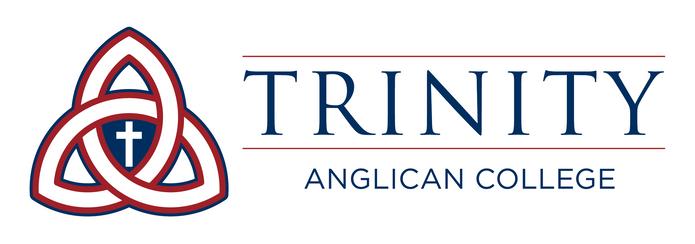
YEAR 9 - 2024
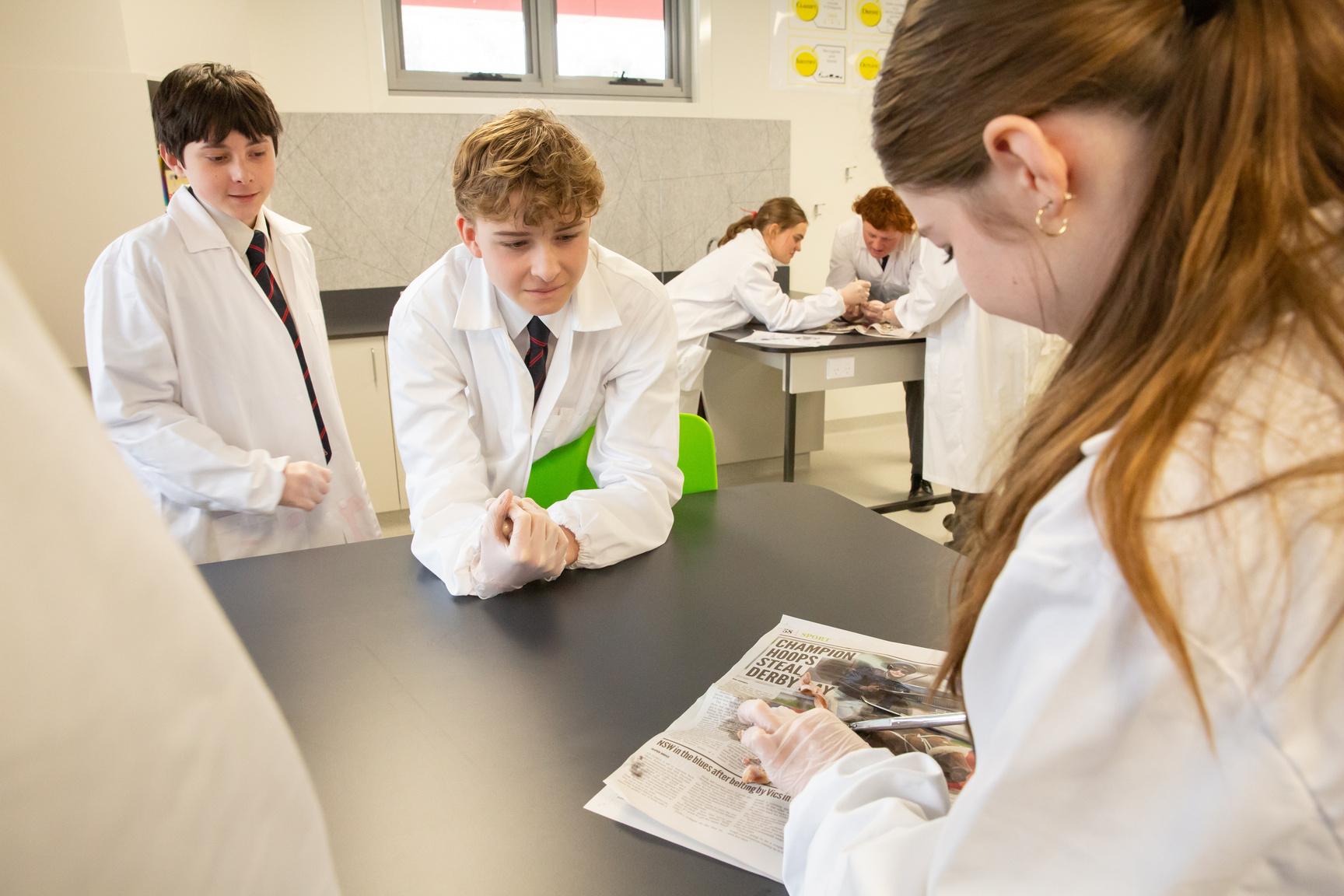
Contents Welcome Consider / Explore / Decide 1 1 - 2 Statement tips for course selection Summary of Courses Subject Levies Subject Selection Important Dates and Key Contacts Core Subjects Elective Subjects Introduction 3 6 7 10 11 12 22 Step 1: Consider Step 2: Explore Step 3: Decide
Welcome
Congratulations on reaching this milestone! You are about to embark on the next stage of your secondary school journey. As students’ progress from Year 8 to Year 9, they move from the NSW Education Standards Authority accredited Stage 4 to Stage 5 curriculum. Students move from a curriculum that has been designed to provide broad educational experiences, to one which allows choice of a more specialised nature with future pathways in mind.
At Trinity, we are proud to offer a broad selection of courses that aim to cater to individual abilities, talents, and interests. In Year 9, students must complete seven core subjects (mandatory) where students may notice a subtle and continuing change of focus from acquiring skills to critical and creative thinking in greater depth.
Students also select three electives. You can continue to study elective subjects for two years, with the flexibility to change electives at the end of Year 9. This Year 9 Subject Selection Booklet is designed to provide useful information for students when choosing electives for the following year. It is divided into three key areas to access this information easily – Consider, Explore and Decide.
Step 1 - Consider
Consider electives that interest you. This is your chance to begin to shape your pattern of study around subjects that build on your passions and interests. Choose electives that you may enjoy and are more likely to find success. Consider electives that challenge you and provide a stimulus for your learning growth. We encourage you to be a resilient learner and strive to overcome the challenges in your learning, to be an active participant in your own learning journey.
Consider selections with a realistic perspective. Be realistic about your abilities and choose subjects because you are interested in the possibilities. Your decisions should not be based on peer groups or who the teacher might be. This is an individual choice based on an honest reflection of ability and personal interest.
Introduction
Introduction cont.
Step 2 - Explore
Explore the subject electives that are offered. This guide provides a summary of each core subject, each elective, course fees and topic areas.
Step 3 - Decide
Decide which subject electives you would like to enrol. Plan your subject choices for next year by using the elective selection template on page 8. Make sure that you add your electives in preferential order.
We encourage you to attend the Subject Information Evening on Monday 7 August at 6.30pm to ensure that you are prepared for the selection process.
Please take careful note of the subject selection timeline. Whilst we will do our best to ensure that you receive your first preferences, there may be occasions when this is not possible, and in some instances, subjects may not be offered if there is insufficient interest.
Term 2, Week 3 - Monday 31 July
Term 3, Week 4 - Friday 4 August
Term 3, Week 6 - Friday 18 August
Edval Online subject selection portal opens
Edval Online subject selection portal closes Final subject lines communicated to students and parents
On behalf of the Trinity community, we wish you every success with your future studies.
Stephanie Davis Dean of Studies – Senior School
Step 1: Consider

Step 1: Consider
Student tips when selecting elective courses
In making elective choices, students should talk with as many people as possible: parents, teachers, friends, relatives, our Careers Adviser, and others. All can offer a fresh point of view; however, students should make the final decision. Use the time to think through the options and make realistic choices.
When choosing electives, consider the following: 1.
Abilities - choose courses in which you can do well Interests - choose courses that interest you
Motivation - choose course areas which you want to study
Balance - provides a balanced and broad range of subjects to provide a foundation for subject choices at Year 11 and 12
Career goals - may have relevance to long-term career goals
INSERT SOMETHING HERE ABOUT MATHS
If you are capable and interested in studying French, you are strongly encouraged to continue with this subject in Year 9 and 10 as a decision now to discontinue studies cannot be reversed.
If you are capable and interested in Music, you are strongly encouraged to continue with this subject. It is also strongly recommended that students who select Music have instrumental and/orvocal experience or are currently learningthese skills outside of class. All students who think they may wish to study Music in Year 11 and 12 must choose to complete Music for at least one year.
2 3
4. 5
Step 2: Explore

Step 2: Explore
Summary of Stage 5 Courses 2024
English
English Standard
Mathematics Science
Mathematics Standard
Mathematics Intermediate
Mathematics Advanced
Science
Technology
Agricultural Technology
Food Technology
iSTEM
Information and Software Technology (IST)
Textiles
Timber
Human Society and Its Environment (HSIE)
Mandatory Geography
Mandatory History
Elective Geography
Elective History
Commerce
Creative and Performing Arts
Drama
Music Photography and Digital Media
Visual Arts
Languages
French
Personal Development, Health and Physical Education (PDHPE)
PDHPE
Psychology
Psychology
Religious and Values Education (RAVE)
Religious and Values Education (RAVE)
Rite Journey
Explore cont.
Subject Levies for 2023
Please note:
Subject levies will increase by 4% in 2024
Year 9
Agriculture $105 Commerce $20 Drama $180 Elective Geography $20 Elective History $20 Food Technology $105 French $135 Information and Software Technology (IST) $55 iSTEM $55 Music - Year 9 $300 Music - Year 10 $350 Photography and Digital Media $60 Psychology $60 Textiles $60 Timer $80 Visual Arts $60

Step 3: Decide

Step 3: Decide
TheprogramtheCollegeusesforsubjectselectioniscalledEdval.Itusesthepreferences studentssubmitasthebasisfordevelopingasetofsubjectlines.A subjectline (referredto asthe ‘line’)isagroupofsubjectstimetabledatthesametimeandstudentsareonlyableto studyonesubjectperline.
TheEdvalsystemgenerateslinesbasedonthepreferenceorderofsubjectsselectedbythe students.Thelinesaredevelopedtocreateascenariothatallowsmoststudentstostudy theirhighestpreferences, therefore,itisvitallyimportantforstudentstoentertheirsubjects inorderofpreference. Thesubjectlinesaredifferenteveryyearastheyarebasedonthe preferencesofthestudentcohortandthischangesfromyeartoyear.
SubjectSelectionProcess
Createashortlistofthesubjectsyouwouldliketostudyusing the SubjectSelection Template.
Discussyourchoiceswithyourparents/carers.
Confirmyourlevelof Mathematicswithyourteachers.
Confirmthepreferenceorderofyourtopfiveelectivesubjects(notincludingthecore subjects).Remember,thepreferenceorderdeterminesthesubjectlinesforthefollowing yearsoitisimportantyouputthesubjectsinorderofhowmuchyouwanttostudythem. Confirmthepreferenceorderofyourtworeservesubjects.
SubmityourpreferencesusingtheEdvallinksenttothestudent'sschoolemailaddress.
Onceallsubjectselectionshavebeencompleted,webegintheprocessofdevelopingthe subjectlinesbasedonthepreferencesofallstudentsintheyeargroup.Thesesubjectlines willbecommunicatedtostudentsandparentstowardstheendofTerm3,afterwhich studentswillfinalisetheirpatternofstudyforYear9.
Changingsubjectsaftercommencementisnotrecommended,howevertheCollegedoes permitsomealterationtostudents’patternsofstudybasedonlyonextenuating circumstances.StudentrequeststochangesubjectsshouldtakeplacebeforeWeek4of Term1inYear11.Insuchinstances,choiceswillbelimitedtothesubjectsofferedonthe sameline.RequestsafterWeek4ofTerm1willnotusuallybepermitted.
Stage1–InitialPreferences 1 2. 3 4. 5
6.
Stage2–FinalSubject/ElectiveSelection
Step 3: Decide cont.
Important Dates
Term 3, Week 1 - Friday 21 July
Term 3, Week 4 - Monday 7 August
Term 3, Week 4 - Tuesday 8 August
Term 3, Week 5 - Monday 14 August
Term 3, Week 6 - Friday 25 August
Key Contacts
Subject Selection Booklet Released
Subject Selection Information evening
Edval Online subject selection portal opens
Edval Online subject selection portal closes
Final subject lines communicated to students and parents
Dean of Studies - Senior School - Stephanie Davis
Head of Senior School - David Smith
Careers Advisor - Mark Dicketts
Heads of Department:
HSIE - Mark Fagan
English - Jessica Alvey
Science - William Muir
PDHPE - Carissa Furze
Mathematics - Rachel O'Donnell
Technology - Tahlia Dahmes
CAPA - Sarah Bradbury
VET - Mark Dicketts
Distance - Stephanie Davis
Heads of House
Hoffman - James Toohey
Kelton - Davina Gibb
Kimball - Karen Ennis
Lankaster - Glenn Mancer
Petts - Kimberley Graetz
Rosborough - Elizabeth Williams
stephanie.davis@trinityac.nsw.edu.au
david.smith@trinityac.nsw.edu.au
mark.dicketts@trinityac.nsw.edu.au
mark.fagan@trinityac.nsw.edu.au
jessica.alvey@trinityac.nsw.edu.au
william.muir@trinityac.nsw.edu.au
carissa.furze@trinityac.nsw.edu.au
rachel.odonnell@trinityac.nsw.edu.au
tahlia.dahmes@trinityac.nsw.edu.au
sarah.bradbury@trinityac.nsw.edu.au
mark.dicketts@trinityac.nsw.edu.au
stephanie.davis@trinityac.nsw.edu.au
james.toohey@trinityac.nsw.edu.au
davina.gibb@trinityac.nsw.edu.au
karen.ennis@trinityac.nsw.edu.au
glenn.mancer@trinityac.nsw.edu.au
kimberley.graetz@trinityac.nsw.edu.au
elizabeth.williams@trinityac.nsw.edu.au

Core Subjects

NESA Stage 5 Syllabus

In Year 9, English continues to develop students’ use of language and skills in reading, writing, speaking, listening, viewing, and representing. The literature studied becomes progressively more complex and challenging, with more precision required in analysis, composition, and evaluation. Students learn to practice close textual analysis and reflect on the purposes and effects of language use. They are required to respond in detailed, structured forms, such as formal essays, and creative compositions They also use a range of modes, media, and technology to create and analyse texts
Students study novels, films, media texts, online sources, digital media, picture books, graphic novels, poetry, drama and other written, visual and spoken texts. The texts examined provide students with an experience and understanding of different forms of Australian literature including insights into the Aboriginal experience in Australia and other multicultural perspectives evident in Australian literature over time. The course also introduces students to our place in the wider geographical region through an exploration of selected Asian literature
The work undertaken by students in and around texts will enable them to begin to engage with experiences of cultural heritages, popular cultures and youth cultures, and a range of social, gender and cultural perspectives



English
Mathematics
NESA Stage 5 Syllabus
Mathematicsprovidesstudentswithknowledge,skillsandunderstandinginNumberandAlgebra, MeasurementandGeometry,andStatisticsandProbability.Itfocusesondevelopingmathematical understanding,fluency,communication,logicalreasoningandproblem-solvingskills.Theabilityto interpretandapplymathematicsinavarietyofcontextsisanessentialcomponentofstudents’ preparationforlifeinthe21stcentury.
BythetimetheyreachYear9,studentsexhibitawiderangeofmathematicalskills,levelsof competence,andaspirations.Somestudentsmaybeseekingtoaddressmorechallenging mathematicstopreparethemfortheAdvancedandExtensionlevelcoursesinStage6.Somestudents maybeaimingtodevelopthemathematicalskillsnecessarytofunctionindailylifeandvariouswork contexts.
TheMathematicssyllabusforStage5(Years9and10)issplitintothreelevels:Stage5.1,Stage5.2and Stage5.3.Theselevelsrepresentacontinuumofprogressivelymorecomplexideas.Studentsare expectedandencouragedtoprogressasfaraspossiblethroughthecontinuum.Allstudentsstudy Stage5.1contentandmoststudentswillcompleteStage5.2content.Onlythemostablestudentswill completealltopicsintheStage5.3syllabus,includingoptionalextensionmaterial.
StudentswillbeplacedintoMathematicscoursesusingassessmentinformationthathasbeen collectedthroughoutStage4Mathematics.Thereispotentialformovementbetweencourseswhen appropriateandstudentsareencouragedtospeakwiththeirteachershouldtheywishtostudytopics fromahighercourse.Whileweaimtochallengeeverystudent,presentingcomplexconceptstoo quicklymayhaveadetrimentalimpactonbothperformanceandconfidence.Teacherswilloftengauge howwellstudentsareunderstandingtopicsbeforedecidinghowmuchcontentanddepthofthenext leveltoinclude.
AtTrinity,ourMathematicsclassesarestructuredtoallowstudentstocoverasmuchofthecontent curriculumaspossible,basedontheirpriorknowledgeandperformance.Eachofourcoursescoversa differentamountofthecontinuum:
The Advanced(5.3)MathematicscourseaimstocoverallStage5.1,5.2and5.3contentaswellas someoftheoptionalextensiontopics,bytheendofYear10.Thiscourseenablesstudentstolearnthe mathematicalprinciplesrequiredforthestudyofMathematicsAdvancedandMathematicsExtension1 inYear11.
The Intermediate(5.2)Mathematics coursecoversallofStage5.1and5.2content,withsomestudents studyingadditional5.3topics.Thiscoursewillprovidestudentswiththemathematicalprinciplesto studyeitherMathematicsAdvancedorStandardatYear11.
The Standard(5.1)Mathematics coursecoversalloftheStage5.1contentandwillpresentsome contentfromStage5.2whenappropriate.Thiscourseenablesstudentstolearnthemathematical principlesrequiredtostudyMathematicsStandardinYear11.
Science
NESA Stage 5 Syllabus
Science provides an empirical way of answering interesting and important questions about the biological, physical, and technological world, and enables students to make informed choices and responsible decisions as individuals and as part of the community.



Through the study of Science, students develop knowledge and understanding of the living and nonliving world Students examine the historical and ongoing contribution of scientists and the implications of this research on scientific knowledge, society, technology, and the environment.
Students work individually and in teams to plan and conduct investigations They evaluate issues and problems, identify questions for inquiry and draw evidenced based conclusions from their investigations By engaging in scientific inquiry, students develop a deeper appreciation of the unique nature and development of Science as an evolving body of knowledge, of the provisional nature of scientific explanations and of the complex relationships between evidence and ideas Students’ understanding of Science and its social and cultural contexts provides a basis for them to make reasoned evidence-based future choices and ethical decisions, and to engage in finding innovative solutions to science-related personal, social and global issues, including sustainable futures
Practical experiences, which emphasise hands-on activities, will occupy a substantial amount of course time. All students will be required to undertake at least one research project during Stage 5.
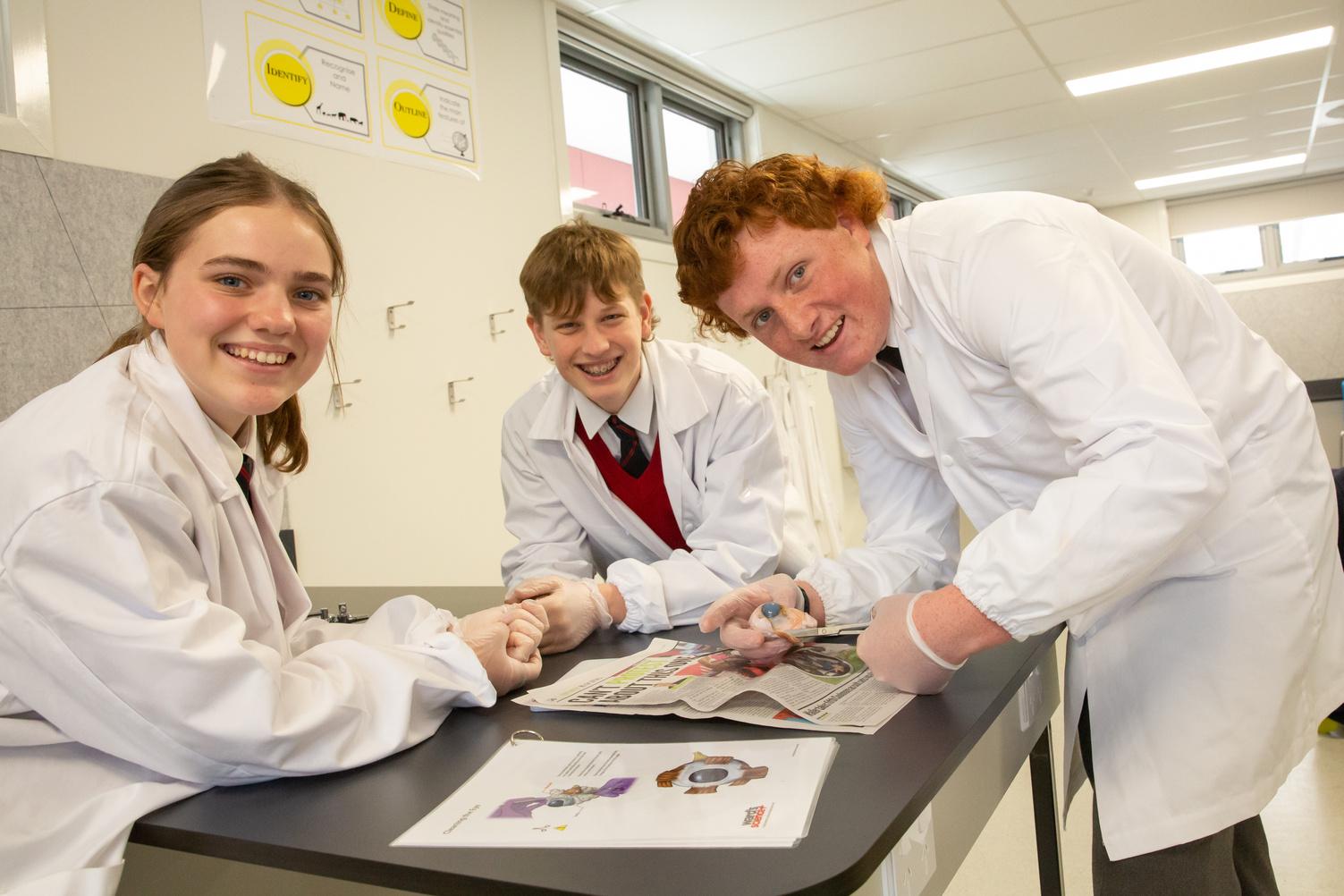
Geography
NESA Stage 5 Syllabus
Students will apply knowledge and skills acquired in Year 8 to increase the depth of study on the physical and economic geography of Australia Case studies are taken from a variety of Australian industries and ecosystems.

By the end of Stage 5, students can explain geographical processes that change features and characteristics of places and environments over time and across scales through the collection, analysis and evaluation of primary data and secondary information. Students will also analyse interconnections between people, places and environments and propose explanations for distributions, patterns, and spatial variations
Students compare changing environments, analyse global differences in human wellbeing, explore alternative views to geographical challenges and assess strategies to address challenges using environmental, social and economic criteria


Students will propose explanations for significant patterns, trends, relationships and anomalies in geographical phenomena and propose solutions, taking into account contemporary points of view and predicted outcomes. Students participate in relevant fieldwork to collect primary data and enhance their personal capabilities and workplace skills

History
NESA Stage 5 Syllabus
History aims to build on the skills from Year 8 (Stage 4). Students study topics in global history, while still maintaining a focus on the way these events and ideas have had an impact on Australian life They will discover the links that Australia has with the rest of the world based on past events.

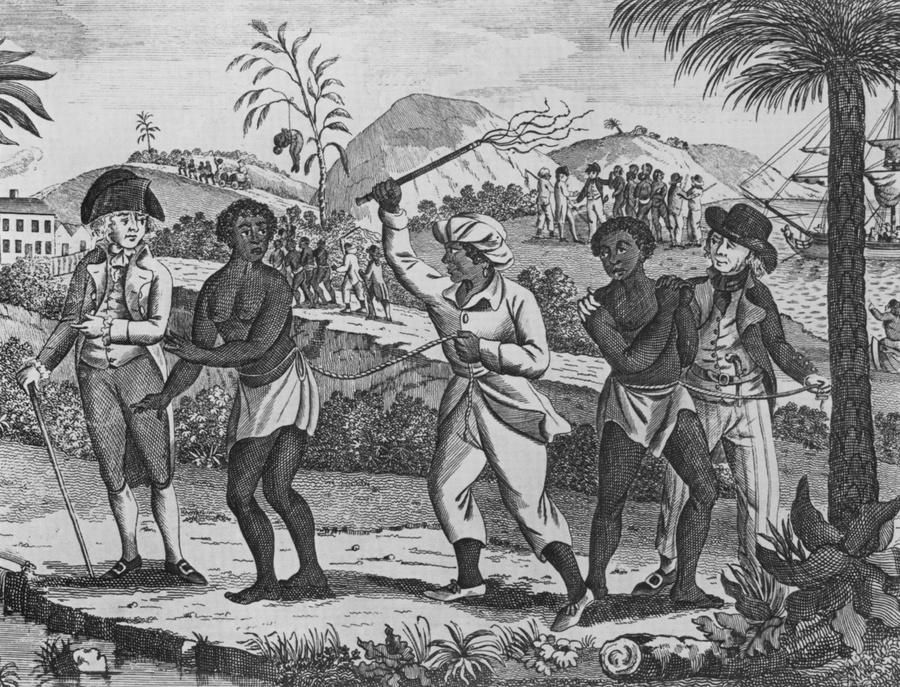
A core topic of ‘Australians at War’ is studied, which deals with Australia’s involvement in both World War I and II, and the legacy of these periods of combat Students will also trace the migration patterns of many groups in the world throughout the Victorian Age (from 1750 -1900) and the impacts these movements have had on the Industrial Revolution through to convict transportation and the slave trade This is facilitated through the unit of study ‘The Movement of People’
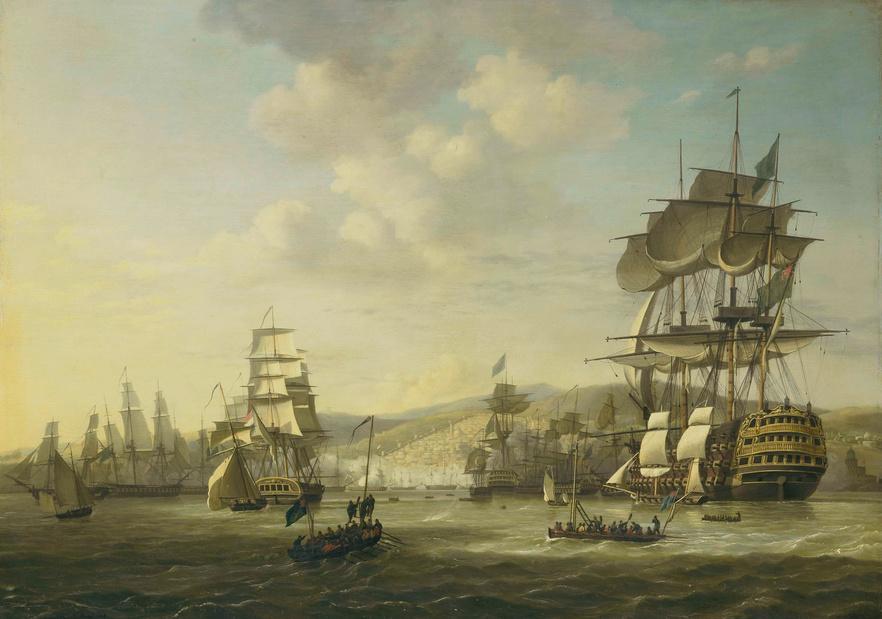

Personal Development, Health and Physical Education
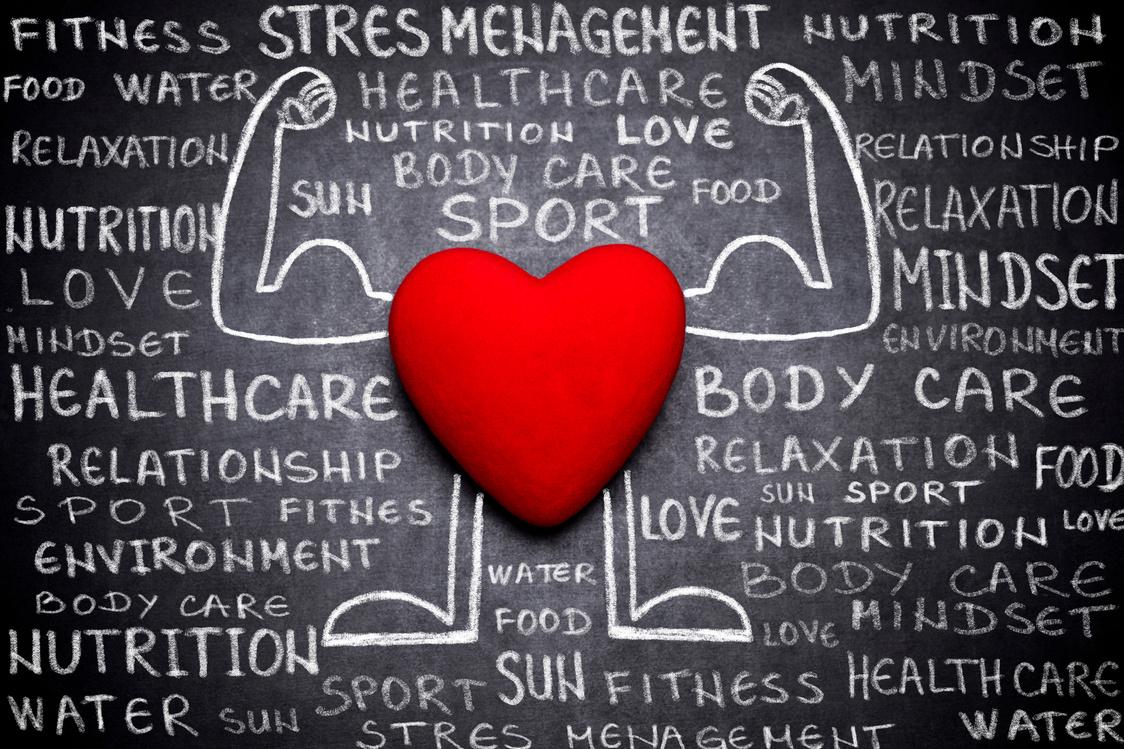
NESA Stage 5 Syllabus
PDHPE continues to involve a wide variety of topics within the three disciplines of the subject. Broad ranges of physical pursuits are undertaken to enable students to experience activities that may lead to lifelong recreational or sporting involvement. In the theory aspect of the subject the focus is more intent on personal responses to societal issues
All students study the four modules:
Self and Relationships - Students learn about sense of self, adolescence and change, sources of personal support and the nature of positive, caring relationships

Movement Skill and Performance - Students explore the elements of composition as they develop and refine movement skills in a variety of contexts
Individual and Community Health - Students learn about the specific health issues of mental health, healthy food habits, sexual health, drug use and road safety They examine risk, personal safety and how to access health information, products, and services.

Lifelong Physical Activity - Students consider lifestyle balance and the importance of physical activity and its physical benefits Students learn to participate successfully in a wide range of activities and to adopt roles that promote a more active community.

Religious and Values Education (RAVE)
RAVE focuses on skills of self-reflection and critical thinking. The aim is for students to be able to articulate their own developing worldviews and belief systems and bring these into critical conversations with the Christian and other religious traditions.
Students will study:
Christian Belief and Worship: students consider the emergence of the Christian Church after Jesus, as well as exploring the liturgical year, the sacraments, and roles within the Church Sikhism: its origins, beliefs, rituals, and practices



Poverty and Wealth: examines the phenomenon of global wealth inequality, the causes of poverty as well as secular and religious responses
Science and Religion: explores the difference between scientific and religious thought.

Rite Journey

The Rite Journey program provides a unique educational program designed to support selfawareness, responsibility, respectfulness, and resilience The program uses a Rite of Passage framework to deepen the students’ experience of this important life transition. The program guides adolescents in reflection, discussion and developing strategies around transitioning into adulthood
The Rite Journey was created to specifically meet the needs of schools as a year-long program that uses middle schooling methodologies to engage students in the process.
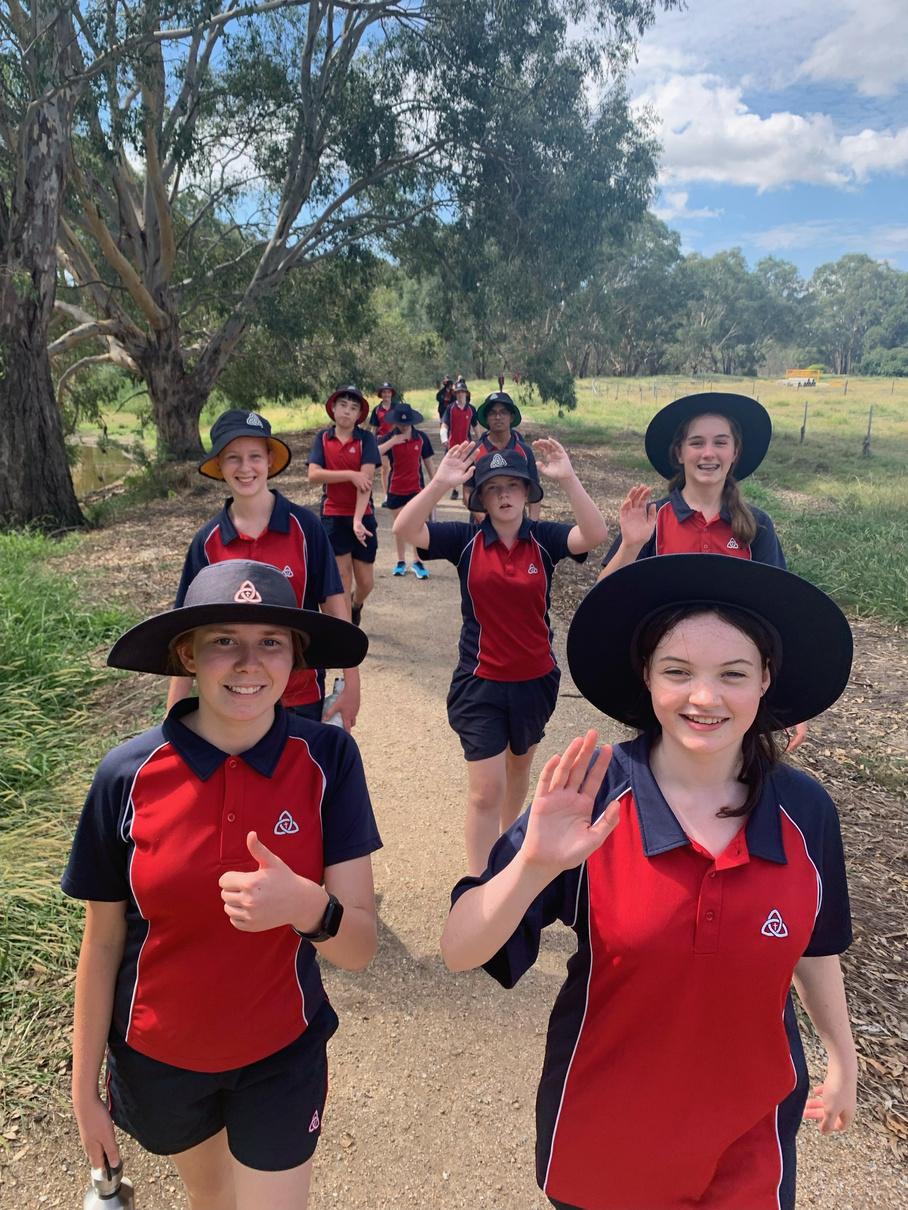


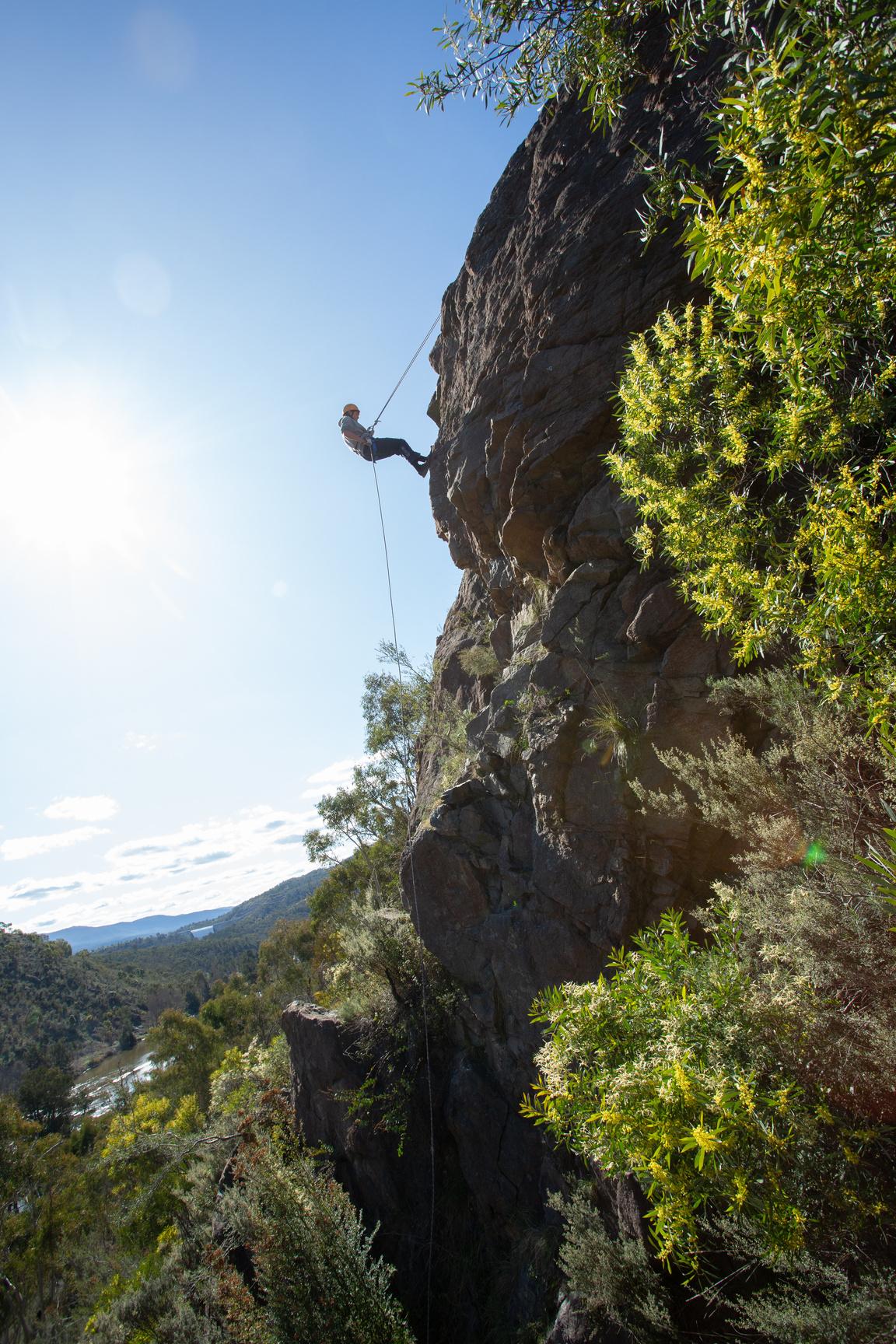


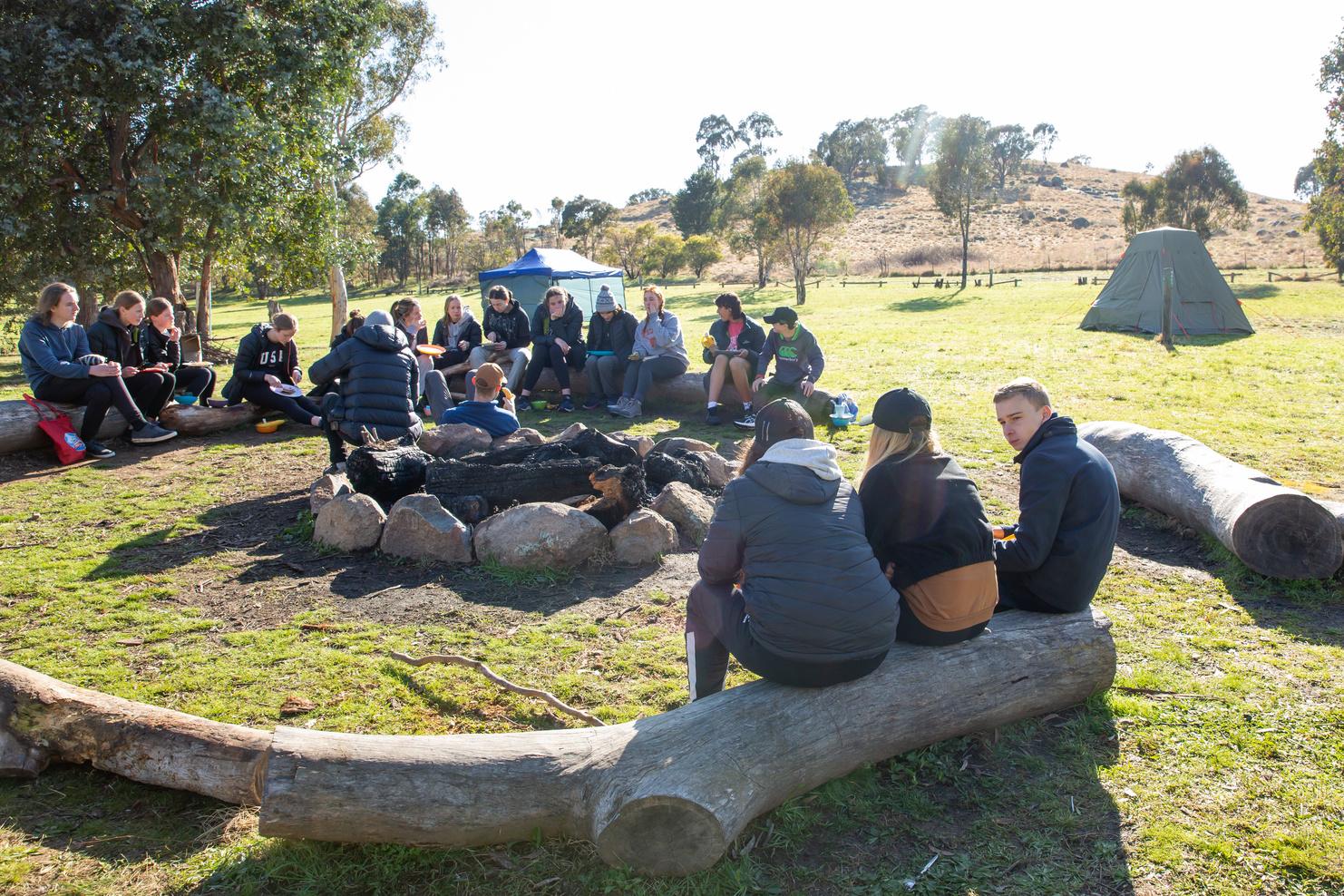
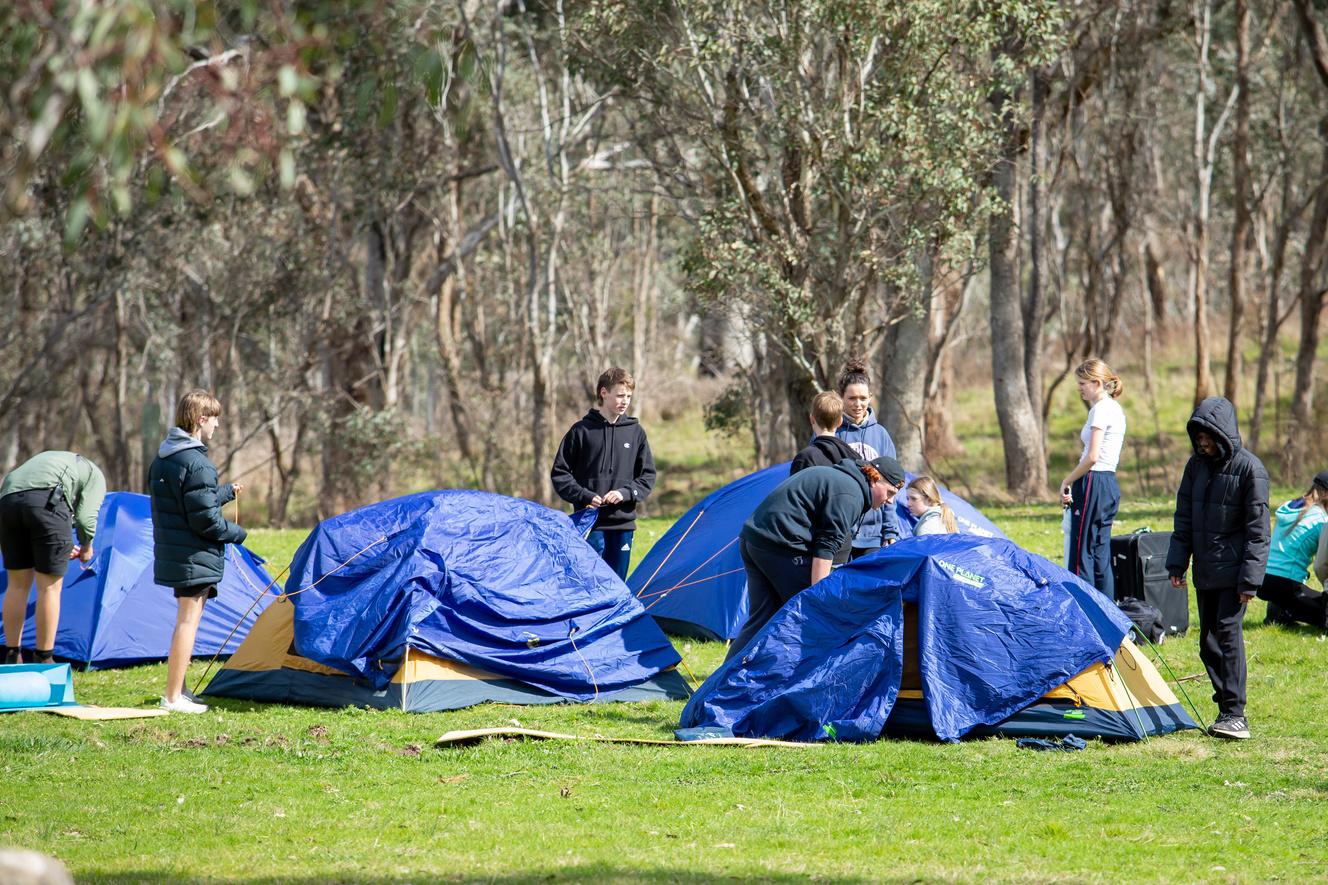
Elective Subjects


Agricultural Technology
NESA Stage 5 Syllabus
Agricultural Technology provides students with an opportunity to experience aspects of an agricultural lifestyle through direct contact with plants and animals and a variety of outside activities


It develops knowledge, understanding and skills in the management of plant and animal enterprises, the technology associated with these enterprises and the marketing of products The design processes used in agriculture may be used to develop small tasks, such as using locally made materials to design a farm gate, to entire enterprises, such as planning, producing, and marketing a crop The dynamic nature of Agriculture results from a continuing growth in the knowledge of technology and in its application to the production, processing and marketing of systems and products
Agriculture offers students the potential to contribute to the debate and to make informed decisions about issues that will affect Australia’s sustainable future. To make these decisions, student need to understand the range of technological applications and processes associated with agriculture and appreciate the consequences of technological innovation in agriculture.
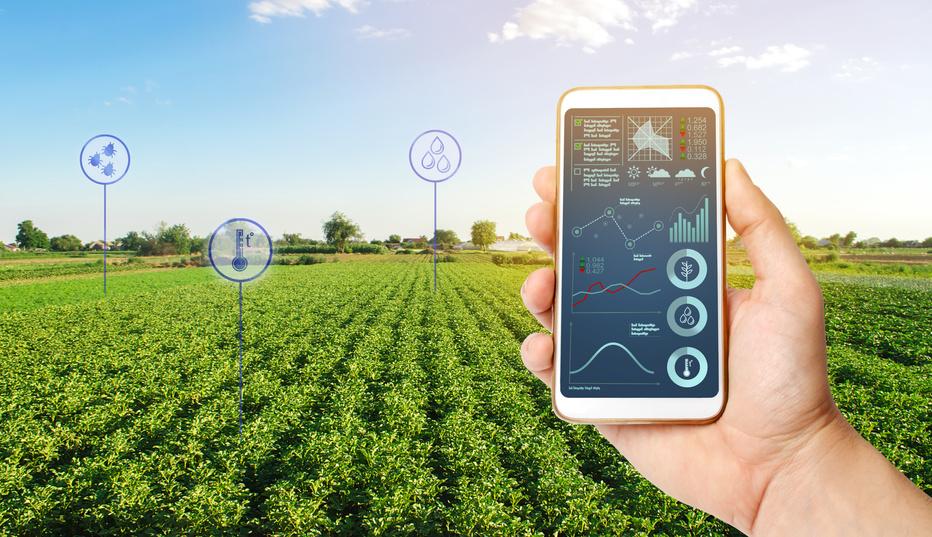
Students will spend some of the course on practical experiences related to the chosen enterprises, including fieldwork, small plot activities, laboratory work and visits to commercial farms and other parts of the production and marketing chain

Commerce
NESA Stage 5 Syllabus
Commerce provides the knowledge, understanding, skills and values that form the foundation to make sound decisions about consumer, financial, economic, business, legal, political and employment issues. It develops an understanding of commercial and legal processes and competencies for personal consumer and financial management Through the study of Commerce students develop consumer and financial literacy which enables them to participate in the financial system in an informed way
Throughout the course, there is an underlying theme of technological change and how it affects consumers and businesses After studying Commerce, students will have developed a range of valuable skills and knowledge to pursue study in Legal Studies, Business Studies and Economics and Society and Culture in Year 11 and 12




Drama
NESA Stage 5 Syllabus

Drama enables students to develop knowledge, understanding and skills to perform, make and appreciate dramatic and theatrical works Students take on roles as a means of exploring both familiar and unfamiliar aspects of their world while exploring the ways people react and respond to different situations, issues, and ideas
Drama leads students to learn about themselves and others by creating characters and situations through enactment. Students increase their self-confidence in the effective communication of their ideas through both verbal and non-verbal language. The course provides performance opportunities and experience of live theatre


Students undertake a unit of play-building Play-building refers to a group of students collaborating to make their own piece of drama from a variety of stimuli. At least one other dramatic form or performance style must also be studied Examples of these include improvisation, mime, script, puppetry, small-screen drama, physical theatre, street theatre, mask, comedy, and Shakespeare. Students will also learn about the elements of drama, various roles in the theatre, the visual impact of design, production elements and the importance of the audience in any performance
Students learn to make, perform and appreciate dramatic and theatrical works They devise and enact dramas using scripted and unscripted material and use acting and performance techniques to convey meaning to an audience They learn to respond to, reflect on and analyse their own work and the work of others.

Food Technology
NESA Stage 5 Syllabus
Food Technology provides students with a broad knowledge and understanding of food properties, processing and preparation, nutritional considerations, and consumption patterns It addresses the importance of hygiene and safe working practices and legislation in the production of food. Students will develop food-specific skills, which can then be applied in a range of contexts Food Technology involves understanding the processing, preparation, marketing and consumption of food in domestic, commercial, industrial and global settings It involves students investigating food through practical applications and processes

The major emphasis of the Food Technology syllabus is about exploring food-related issues through a range of practical experiences, allowing students to make informed and appropriate choices about food Integral to this course is developing the ability and confidence to design, produce and evaluate solutions to situations involving food. They will learn to select and use appropriate ingredients, methods, and equipment safely and competently
After studying Food Technology, students will have developed a range of valuable skills and knowledge to pursue a study of Food Technology in Years 11 and 12, or further education at universities and TAFE Colleges in the areas of Business, Hospitality and Tourism, Nursing and Teaching



French NESA Stage 5 Syllabus
One of the most rewarding aspects of studying a second language lies in understanding the thought processes of another culture, as well as the sense of achievement that arises from being able to communicate in a foreign medium. French remains the international language of diplomacy and is spoken by several of our near neighbours Students will develop the knowledge, understanding and skills necessary for effective interaction in French. They will explore the nature of languages as systems by making comparisons between English and French
French continues to build on reading comprehension, listening comprehension, and speaking. Students will work towards being able to communicate orally in a variety of situations and converse freely on a range of topics. Students improve their grounding in the necessary grammatical, oral, aural, and writing skills to lead them into Stage 6


French is compulsory in Year 9 if the student wishes to continue studying the course in future years


Geography Elective
NESA Stage 5 Syllabus
Geography Elective emphasises the physical, social, cultural, economic, and political influences on people, places, and environments, from local to global scales It emphasises the important interrelationships between people and environments through the investigation of contemporary geographical issues and their management The wellbeing of societies and environments depends on the quality of interactions between people and the natural world.
The content of this elective subject is different from the mandatory course. Students engage in at least three of the eight focus areas defined in the syllabus, and as summarised below.
Physical Geography: Students will study the geographical processes that form and transform the physical world
Oceanography: Students will focus on the features and importance of the world’s oceans and issues associated with them

Primary Production: Students will question patterns, functions and issues associated with primary production
Global Citizenship: Students will explore the importance of Australia being an informed, responsible, and active global citizen

Australia’s Neighbours: Students will consider the environments of Australia’s neighbours and specific geographical issues within the Asia–Pacific Region.


Political Geography: Students will focus on the nature and distribution of political tensions and conflicts, and strategies towards effective resolutions.
Interaction and Patterns along a Continental Transect: Students will look in depth at the factors responsible for causing variation in spatial patterns across a continent from one specific location to another.
h l d l d i h l d d h the opportunity to develop their tion and/or area of inquiry that
History Elective
NESA Stage 5 Syllabus
History Elective enables students to investigate the actions, motives,and lifestyles of people over time, from individuals and family members, to local communities, expanding to national and world history contexts. It introduces the idea that the past contains many stories and that there is never only one uncontested version. History Elective enables students to investigate a historical issue through a range of sources and can stimulate curiosity and develop empathetic understanding, problem-solving, research, and critical thinking skills. It develops language specific to the discipline of History and provides opportunities to continue to develop literacy skills. Students learn to critically analyse and use sources of evidence in order to construct reasoned explanations and a rational and informed argument based on evidence, drawn from the remains of the past. Students engage in research involving information and communication technology (ICT), including evaluating web-based sources and using a range of technologies for historical research and communication.
The History Elective course consists of three topics which include a range of options for study.
History, Heritage and Archaeology: different perspectives and interpretations of the past are reflected in a variety of historical constructions.


Ancient, Medieval and Modern Societies: An in-depth study of the major features of ancient, medieval, or modern societies.
Thematic Studies: Provides an opportunity to enjoy the study of history for its intrinsic interest and to develop an understanding of the thematic approach to the study of history.


Industrial Timber
NESA Stage 5 Syllabus
Industrial Technology builds on the knowledge, skills and experiences developed in the Technology (Mandatory) Years 7-8 Syllabus.
Industrial Technology develops students’ knowledge and understanding of materials and processes in a range of technologies. Students develop knowledge and skills relating to the selection, use and application of materials, tools, machines and processes through the planning and production of quality practical projects.
All students will study the range of tools, machines, and processes available in both industrial and domestic settings for working with selected materials. Students will learn about safe practices for practical work environments, including risk identification and minimisation strategies. They will also learn about design and designing including the communication of ideas and processes.

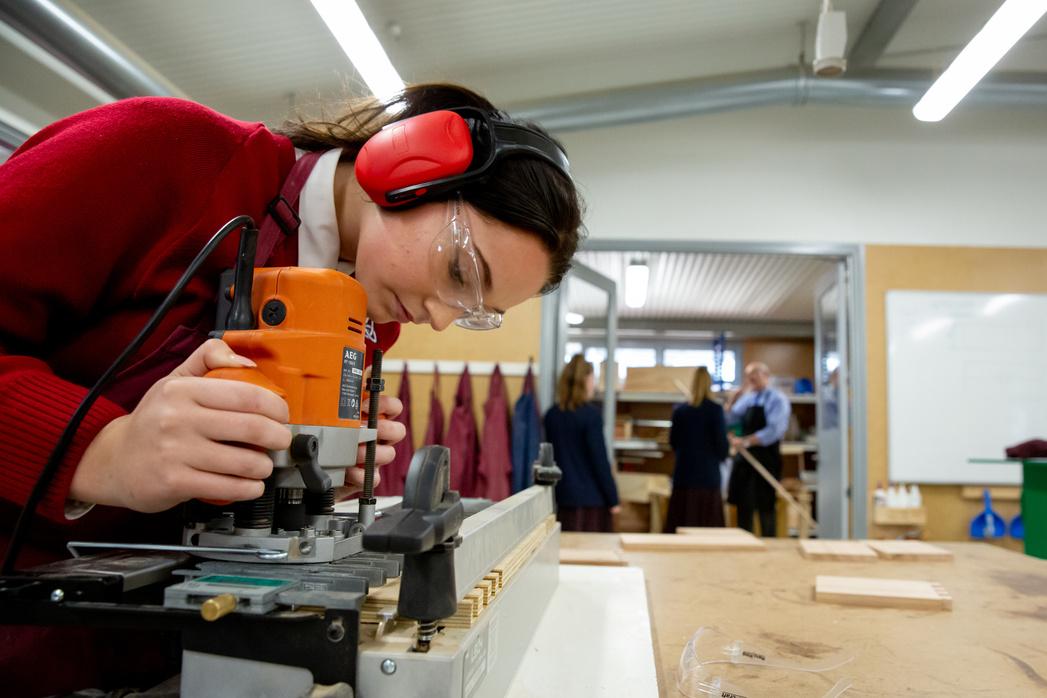
The major emphasis of the Industrial Technology syllabus is to actively plan and construct quality practical projects. Students will learn to select and use a range of materials for individual projects. They will learn to use a range of hand tools, power tools and machines competently and safely to assist in the construction of projects. They will also learn to produce drawings, written reports and to communicate ideas and information relating to their projects.


Integrated Science, Technology, Engineering and Mathematics (iSTEM)
STEM refers to science, technology, engineering, and mathematics. The importance of STEM disciplines for the future economic and social well-being of Australia cannot be underestimated. The main purpose of this course is to better engage students in science, technology, engineering and mathematics. It is meant to challenge and excite students with the possibilities of the future.

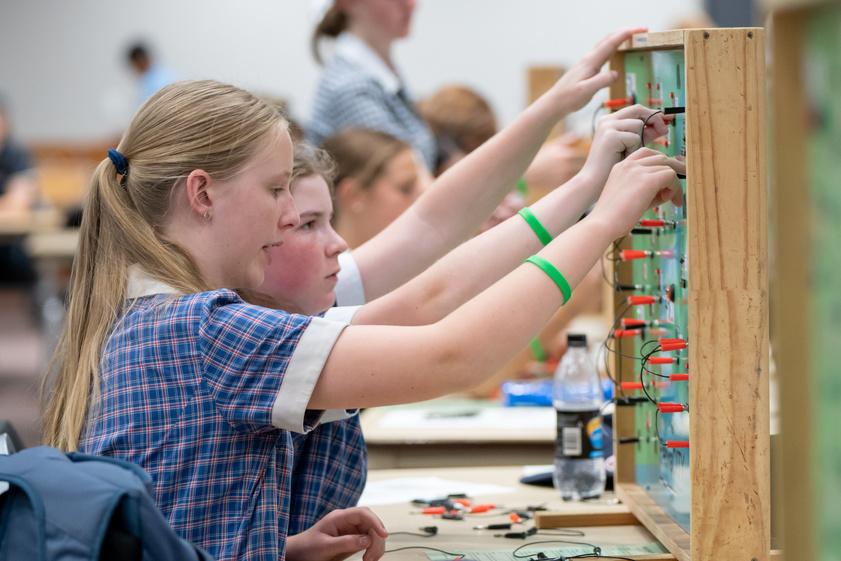

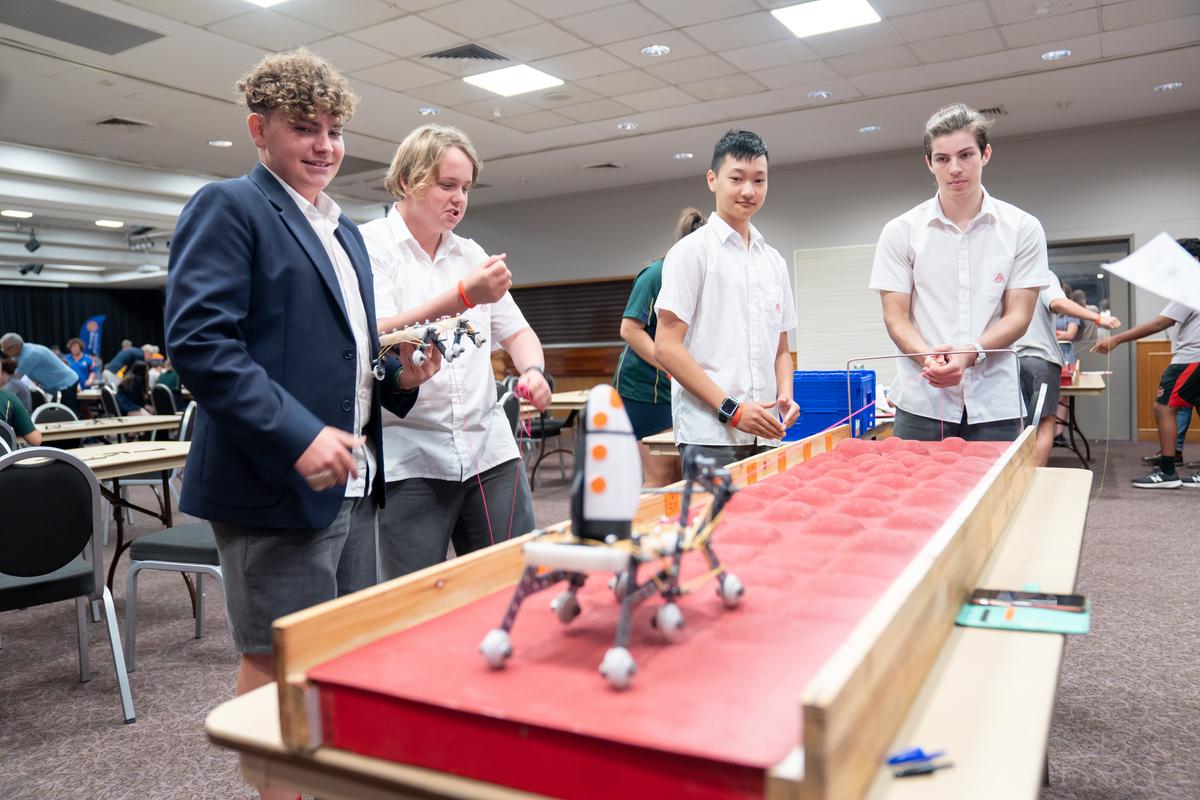
The Trinity iSTEM course covers several modules in the fields of science, technology, and engineering. Students have the option to participate in a variety of competitions and STEM-based intervention programs during the course. Students will also study a variety of themed units of work focusing on the application of science, technology, engineering, and mathematics to real life, through inquiry-based learning techniques.
STEM topics may include:
Science and Engineering Challenge
Down Force Racer Challenge
Robotics Challenge Days
Major Research Projects
Alternative Energy Challenge
Information and Software Technlogy (IST)
NESA Stage 5 Syllabus
Information and Software Technology (IST) enables students to become safe and responsible users of computing technologies and developers of innovative digital solutions Through the practical application of knowledge and understanding, students develop skills to design, produce and evaluate creative solutions using a range of computing technologies
Students will focus on creatively using information technologies and programming technologies

The option topics include:
Artificial Intelligence, Simulation and Modelling

Authoring and Multimedia
Digital Media
Internet and Website Development

Robotics and Automated System
Software Development and Programming
After studying IST students will have developed a range of valuable skills and knowledge to pursue a study of Information Processes and Technology and/or Software Design and Development in Year 11 and 12.

Music
NESA Stage 5 Syllabus
All students should have the opportunity to develop their musical abilities and potential. As an artform, music pervades society and occupies a significant place in world cultures and in the oral and recorded history of all civilisations. Music plays important roles in the social, cultural, aesthetic, and spiritual lives of people At an individual level, music is a medium of personal expression It enables the sharing of ideas, feelings, and experiences. The nature of musical study allows students to develop their capacity to manage their own learning, engage in problem-solving, work collaboratively and engage in activity that reflects the real-world practice of performers, composers, and audiences
Students will study the concepts of music (duration, pitch, dynamics and expressive techniques, tone, colour, texture and structure) through the learning experiences of performing, composing and listening, within the context of a range of styles, periods, and genres
The course requires the study of the compulsory topic Australian Music, as well as several optional topics that represent a broad range of musical styles, periods, and genres.



It is strongly advised, yet not essential, that students who will select Music as a Stage 6 subject should study this subject in Stage 5. Likewise, it is strongly advised, that students taking music have adequate instrumental and/or vocal skills to effectively complete the course and that they are undertaking lessons outside of this class. In addition, all students will be expected to contribute to studying Music, students will have dy of Music in Year 11 and 12.
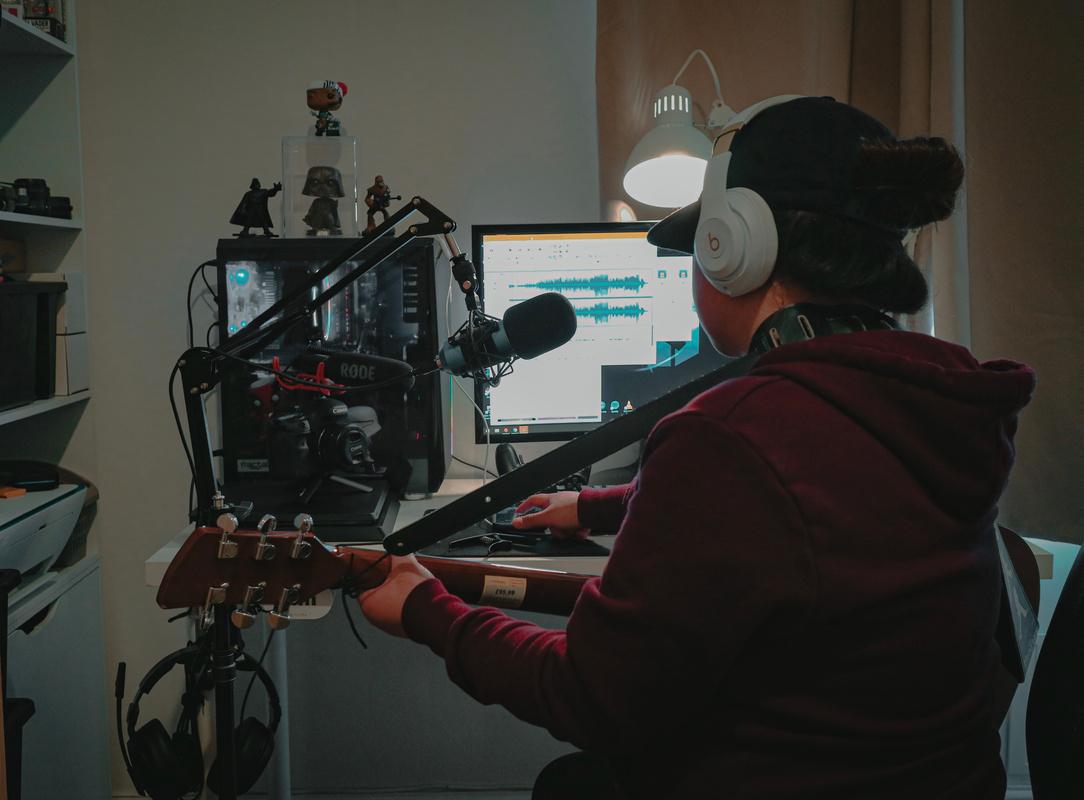
Photographic and Digital Media

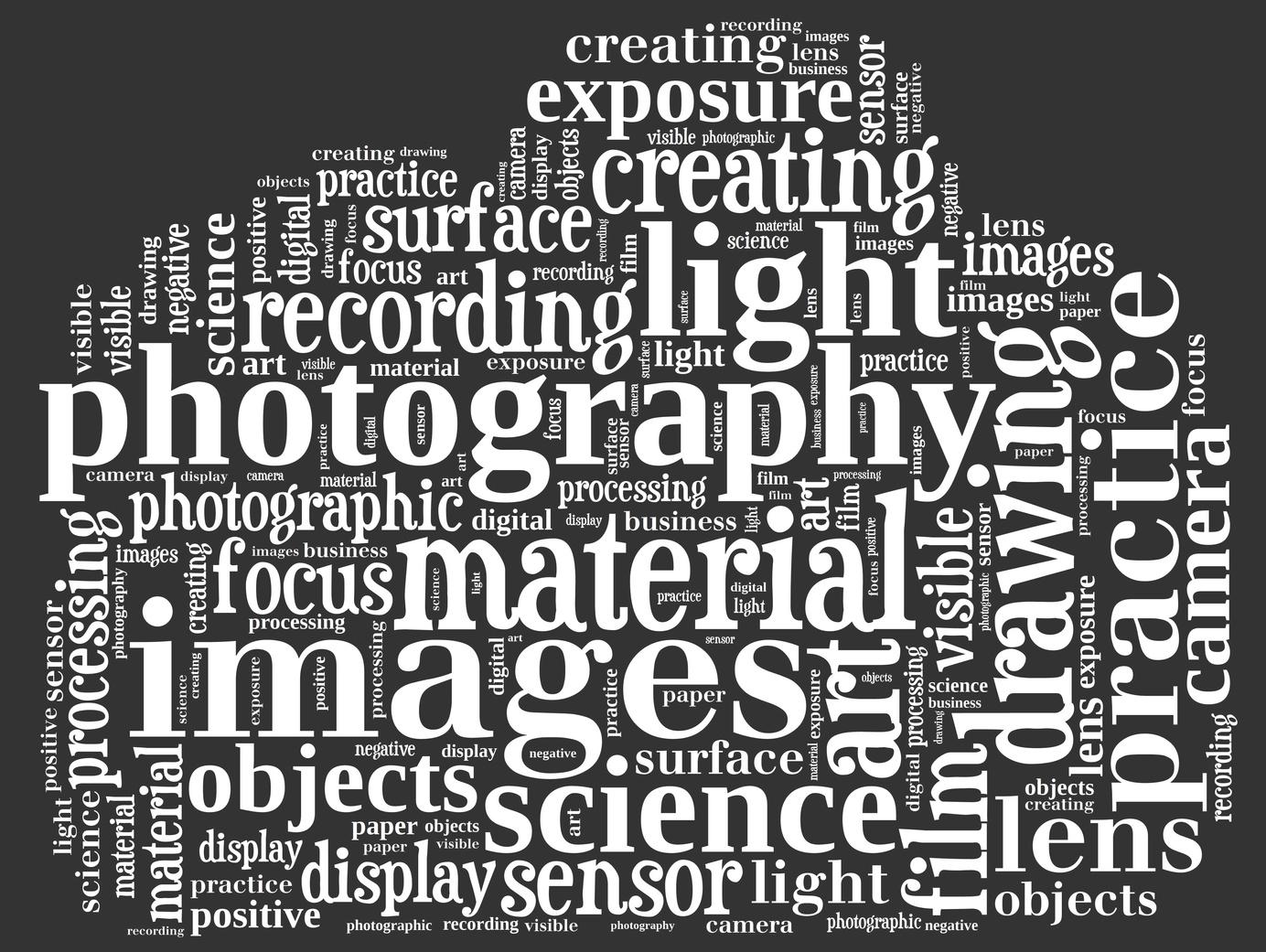


NESA Stage 5 Syllabus
Photographic and Digital Media provides opportunities for students to enjoy making and studying a range of photographic and digital media works It enables students to represent their ideas and interests about the world, to engage in contemporary forms of communication and understand and write about their contemporary world Photographic and Digital Media enables students to investigate new technologies, cultural identity and the evolution of photography and digital media into the 21st century Students are provided with opportunities to make and study photographic and digital media works in greater depth and breadth than through the Visual Arts elective course
Students learn about the enjoyment of making different kinds of photographic and digital media works in still, interactive and moving forms. They learn to represent their ideas and interests with reference to contemporary trends and learn how photographers, videographers, filmmakers, computer/digital and performance artists make photographic and digital media works.
Students learn to make photographic and digital media works using a range of materials and techniques in still, interactive and moving forms, including ICT, to build a Photographic and Digital Media portfolio over time They learn to record procedures and activities about their making practice in their Photographic and Digital Media journal.
After completion, students will have developed a range of valuable skills and knowledge to pursue a study of Visual Arts in Year 11 and 12
Physical Activity and Sports Studies (PASS)
NESA Stage 5 Syllabus
Physical Activity and Sports Studies (PASS) is a broad study of physical activity and possible contexts in which individuals can build activity into their lifestyles It is based on the notion that regular physical activity is essential to improving health status and quality of life. This course offers new experiences and challenges beyond those offered through the mandatory PDHPE Years 7–10 course. Participation in physical activity provides opportunities for personal challenge, enjoyment, and satisfaction It also provides for positive interaction with others, in both collaborative and competitive contexts and supports the development of key social skills necessary for strong interpersonal relationships.
PASS promotes learning about movement and provides students with opportunities to develop their movement skills, analyse movement performance and assist the performance of others Recreation, physical activity, sport, and related health fields provide legitimate career pathways. PASS introduces students to valuable and marketable skills in organisation, enterprise, leadership, and communication.
The content is organised in modules within the three Areas of Study:
Foundations of Physical Activity
Physical Activity and Sport in Society

Enhancing Participation and Performance


Students wishing to study PASS need to be aware that they will be expected to participate in all practical and theory lessons and activities They must possess a strong interest in participating in physical activity and a desire to learn the theory behind improving movement skills. Candidates for this elective need be prepared to challenge themselves and undertake physically demanding activities involving recreational pursuits such as mountain biking, hiking and water-based activities
Students will have developed a range of valuable skills and knowledge to pursue a study of PDHPE in Year 11 and 12.
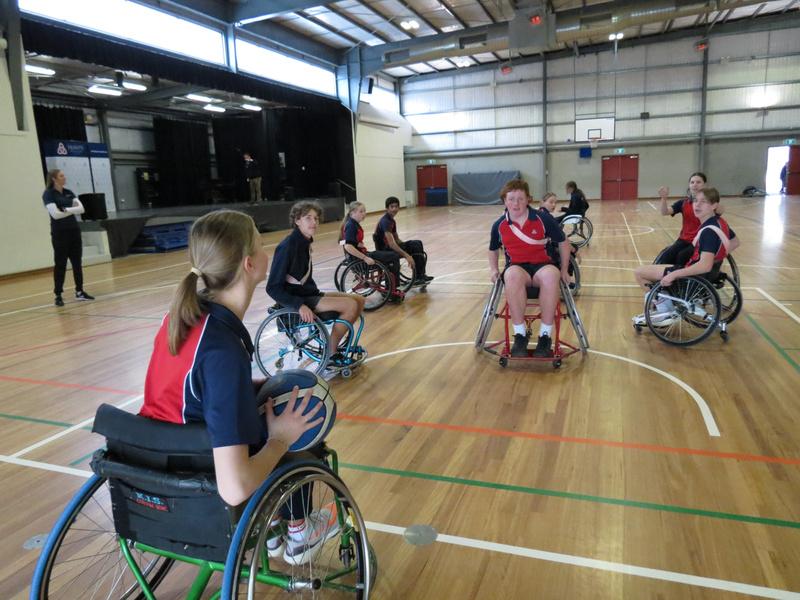
Psychology
Psychology helps to explore the reasons why you think, feel and behave the way you do. This course involves areas of study such as Introduction to Psychology, Brain and Nervous System, Perception/Communication, Emotions, Personality, Intelligence, Positive Wellbeing, Memory, Sleep and Social Relationships These units will introduce students to the scientific study of Psychology Students will investigate human behaviour and mental processes that determine perception, cognition and emotions Students will learn theories and models that are used to describe and explain human behaviour
Throughout this course, students will conduct observational experiments and explore theories to apply scientific thinking to real-life situations.


Studying Psychology can become part of a Year 11 course that can assist to develop the investigative skills required for Extension Science Year 12


Textiles Technology
NESA Stage 5 Syllabus
Textiles Technology acknowledges and embraces an understanding of cultural diversity by examining the ways in which different groups have used textiles as an expressive and functional medium


Historical and cultural uses of textiles continue to influence contemporary designers, so students will examine design features characteristic of a variety of different cultures and use them as sources of inspiration in textile projects where appropriate.

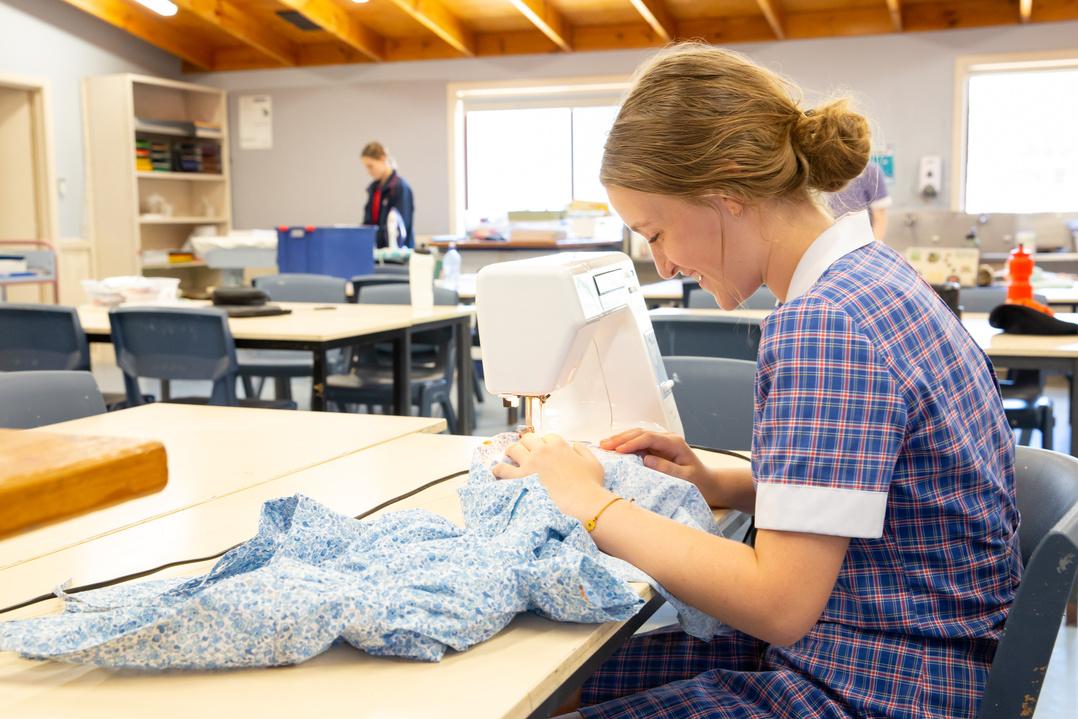
A study of Textiles Technology provides students with broad knowledge of the properties, performance and uses of textiles in which fabrics, colouration, yarns and fibers are explored. Project work, which includes investigation and experimentation, will enable students to discriminate in their choices of textiles. Students will document and communicate their design ideas and experiences and make use of contemporary technology in their project work Completion of projects is integral to developing skills and confidence in the manipulation and use of a range of textile materials, equipment, and techniques
Students will investigate the work of textile designers and from this research make judgments about the appropriateness of design ideas, the selection of materials and of tools and the quality of textile items. Students will be challenged to transfer knowledge to new situations and projects, building on technical skills and past experiences Textile projects will give students the opportunity to be creative, independent learners and to explore functional and aesthetic aspects of textiles, demonstrate responsibility in decision-making and encourage individuals to express ideas and opinions
Students will develop an appreciation of the factors affecting them as textile consumers Current technologies and innovations that continue to emerge in the textile industry will be addressed with emphasis on their economic, social, and environmental consequences.
Visual Arts
NESA Stage 5 Syllabus
Visual Arts provides opportunities for students to enjoy the making and studying of art. It builds an understanding of the role of art in all forms of media, both in the contemporary and historical world. Students will learn about the enjoyment of making different kinds of artworks in 2D, 3D and/or 4D forms. They learn to represent their ideas and interests with reference to contemporary trends and how artists’ including painters, sculptors, architects, designers, photographers, and ceramists, make artworks.
Students learn about how art is shaped by different beliefs, values, and meanings by exploring artists and artworks from different times and places and relationships in the artworld between the artist –artwork – world – audience. They also explore how their own lives and experiences can influence their artmaking and critical and historical studies. They will learn to investigate and respond to a wide range of artists and artworks in artmaking, critical and historical studies. They also learn to interpret and explain the function of and relationships in the art world between the artist – artwork – world –audience to make and study artworks.
Students are required to produce a body of work each term and keep a Visual Arts diary.



After studying Visual Arts, students will have developed a range of valuable skills and knowledge to pursue a study of Visual Arts in Year 11 and 12.

421 Elizabeth Mitchell Drive THURGOONA NSW 2640 02 6049 3400 / office@trinityac nsw edu au www.trinityac.nsw.edu.au/pathways Trinity Anglican College











































































































